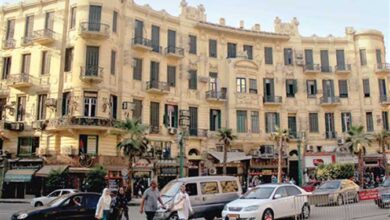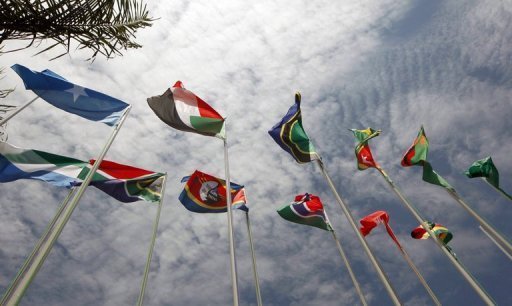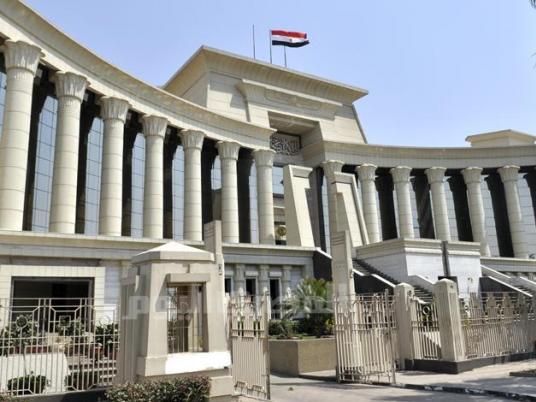
The Supreme Constitutional Court ruled Thursday that a law governing parliamentary elections is unconstitutional in a landmark case that could result in the dissolution of Parliament.
It is unclear whether new elections will be held for single-winner seats, which make up one-third of Parliament and were deemed to have been elected illegally, or if the entire legislature may be disbanded.
Following an approximately three-hour hearing, Egypt's highest court also struck down the Political Isolation Law that strips top ex-officials of political rights, allowing former Prime Minister Ahmed Shafiq to continue his bid for president.
Acting as the country’s executive power, the Supreme Council of the Armed Forces amended the parliamentary elections law several times. At issue is the last amendment, which reversed an earlier stipulation that parties could not compete for single-winner seats in the elections that began last fall.
People's Assembly Speaker Saad al-Katatny of the Freedom and Justice Party was among those elected in a single-winner race.
Before the ruling, liberal MP Mohamed Abou Hamed wrote on Twitter that he hopes Parliament is dissolved, as the current body is "not worthy of Egypt."
The Supreme Constitutional Court's decisions cannot be appealed.
Shafiq’s lawyer, Shawqy al-Sayed, told the court in his arguments that the Political Isolation Law represents an unprecedented case in Egypt’s political history and that it deprives those who are subject to it of their most basic constitutional rights.
He called the law "selective and vengeful," noting that it applies only to some of those who held posts within the dissolved National Democratic Party in violation of the constitutional principle of equality.
After his arguments, the court took a recess for deliberation and then reconvened.
The law, which was passed by Parliament and then approved by the ruling military council in April, bars former President Hosni Mubarak and anyone who served as vice president or prime minister or at the helm of his National Democratic Party during the last 10 years of his rule from running for office, as well as removing other political rights.
Shafiq was briefly disqualified from the race after the law was passed, but the Presidential Elections Commission reinstated him upon appeal and referred the law for constitutional review. The referral itself has also been the subject of debate, with some questioning whether the commission acted beyond its legal bounds.
In a non-binding report, a panel of court commissioners recently said that the elections commission is an administrative institution that does not have the jurisdiction to act as a legal body and refer the law for review. The panel said the constitutional court should not rule on the case for this reason, but that if it did, it should strike down the law.
Meanwhile, dozens of protesters gathered Thursday outside the Supreme Constitutional Court in the Cairo neighborhood of Maadi, chanting in support of the law. For some, Shafiq’s exclusion was the last chance that a liberal candidate could be reinstated.
His potential removal from the race has been the subject of much speculation in recent months as to whether elections would be re-conducted or third-place candidate Hamdeen Sabbahi would be allowed to take his place in the runoff against Mohamed Morsy.
Traffic on the Nile Corniche was paralyzed, with cars lined up for several kilometers, prompting police to redirect vehicles to alternative routes. Tight security measures were imposed in the surrounding area and hundreds of soldiers and Central Security Forces, with their armored vehicles, lined up around the court.
Wasat Party MP Essam Sultan, who drafted the Political Isolation Law, as well as a number of judges, are observing the session. Supreme Constitutional Court head judge Farouk Sultan is among them, but will not preside over the review because of his position at the helm of the Presidential Elections Commission.



